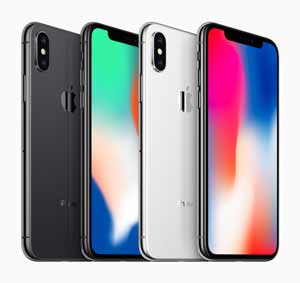While the Q4 Apple earnings rightly wowed Wall Street last Thursday, the focus on the numbers missed a much bigger piece of news.
In the course of the Apple earnings conference call, CEO Tim Cook revealed Apple Inc.'s (Nasdaq: AAPL) "Next Big Thing."
For years, financial pundits have pointed to Apple's reliance on the iPhone as a potential problem.

The basic idea is that the tech giant has milked just about all the growth it can out of the iPhone. For any hope of significant earnings growth, Apple must have a "Next Big Thing," like the iPod in 2001, or the iPhone in 2007.
Over the past few years, analysts periodically declare a rumored Apple project as the Next Big Thing. Remember the imminent Apple-branded television? Or, more recently, the Apple-branded self-driving car?
Apple's interest in either of these areas is unlikely to evolve into a major profit generator.
But Cook spoke again and again about a project that has the potential to push the Apple stock price up more than 40%, but it slipped right past the analysts.
That's because Cook was referring to... the iPhone.
That may seem ridiculous, but the iPhone X is a far more dramatic step forward than most realize. Here's what I mean...
Apple's iPhone X Is Not Just Another iPhone
Despite being an iPhone, the iPhone X is actually the first version of a new Apple platform. This won't be obvious for several years, until we've seen the next couple of versions. But Cook made this plain in his remarks last week.
You see, the new technologies Apple has added to the iPhone X aren't just empty bells and whistles. They're the foundation of Apple's vision for the future.
Learn How to Turn $500 into $1 Million: This Sunday school teacher's "retirement career" made him a millionaire. This book will teach you how you can do it too. Claim your FREE copy...
"The iPhone X is packed with innovative new technologies that chart our path for the next decade, technologies like the TrueDepth camera system, Super Retina Display, and A11 Bionic chip with neural engine, which has been in development for years with a focus on deep machine learning," Cook said.

Let's look at what these mean for iPhone users.
What Apple calls its "TrueDepth" camera system is the sophisticated interplay of an infrared camera, multiple sensors, and the powerful A11 Bionic processor. It's what makes Face ID - the tech that unlocks your phone by scanning your face - possible.
That may seem like a gee-whiz gimmick, but Face ID is just one application of this potent technology combo. These capabilities make the iPhone X a full-throated augmented reality (AR) platform, an area still in its infancy but with vast potential.
AR integrates a real-world view with digital images on your screen. One simple example of this was last year's Pokémon Go craze. Still, Pokémon Go earned $950 million in 2016 alone.
But AR's uses extend far beyond games. Imagine the benefits of this technology in the workplace, for such things as maintenance and repair, or in medicine. AR will have an impact on areas as diverse as education, shopping, the military, and advertising. It will be a transformative technology.
And just as Apple did with the original App Store, it's inviting third-party developers to tap into the hardware features it's created. It's all part of Apple's master plan...
"AR Is Going to Change the Way We Use Technology Forever"
In the conference call, Cook said iOS is now "the world's largest platform for augmented reality. There are already over 1,000 apps with powerful AR features in our App Store today, with developers creating amazing new experiences in virtually every category of apps aimed at consumers, students, and business users alike. Put simply, we believe AR is going to change the way we use technology forever."
Apple's in-house-designed A11 chip plays a major role in making these AR features possible, but it has several more tricks up its sleeve.
For one thing, it enables an array of Artificial Intelligence (AI) features, such as identifying who and what is in a photo. And it will improve Siri's ability to understand and respond to queries (something Apple's voice assistant desperately needs).
Advanced AI will also give the iPhone the ability to make sense of large piles of data, which has applications in fields like healthcare and finance.
Editor's Note: Don't miss a single Apple update. To get real-time alerts sent to your inbox - totally free - sign up here.
This, too, is a centerpiece of Apple's long-term strategy, according to Apple COO Jeff Williams.
"I think we're at an inflection point, with on-device computing, coupled with the potential of AI, to really change the world," Williams said at Taiwan Semiconductor Manufacturing Co.'s 30th anniversary celebration Oct. 23.
"We think that the frameworks that we've got, the 'neural engines' we've put in the phone, in the watch ... we do view that as a huge piece of the future, we believe these frameworks will allow developers to create apps that will do more and more in this space, so we think the phone is a major platform," Williams said.
What this means in terms of Apple stock is that most analysts are underestimating the impact of the iPhone X on the company's bottom line over the next few years.
Here's why I think AAPL stock could rise more than 40% over the next three years...
Why iPhone X Sales Will Outperform Expectations
[mmpazkzone name="in-story" network="9794" site="307044" id="137008" type="4"]
FactSet provides analyst estimates through 2020. Estimates for iPhone sales show projected growth from 217 million phones sold in the just-ended FY 2017 to 242 million next year. But the forecast after that is for flat sales - 242 million in 2019 and 245 million in 2020.
I believe Apple will sell significantly more iPhones in those years than the analysts think. Here's why.
- As described above, the iPhone X is a new platform. That means the iPhone will have capabilities few, if any, Android phones will have, and a stable of apps that take advantage of them.
- The $999 price tag will start to drop next year. You can bet that even the entry-level iPhone SE will get the iPhone X technology within two years. Apple won't wait any longer because it wants to build its future on the foundation of AR and AI tech.
One concern here is that the competition could catch up and negate Apple's technical advantage in AR and AI. But that's unlikely.
Much of Apple's advantage comes from the custom-designed A11 chip. Each successive version of the A-series of chips has increased its lead over the Qualcomm Inc. (Nasdaq: QCOM) and Samsung Corp. chips used in Android phones.
Apple designs the chips, along with the rest of the phone hardware as well as the software, to guarantee superior performance. Other chipmakers, including chief rival Samsung, need to design chips for a broader range of mostly less expensive phones.
So the iPhone's AR and AI capabilities will stay well ahead of the competition for a long time.
In addition, Apple's long courtship of India has begun to bear fruit. In the most recent quarter, Apple said revenue from India doubled year over year. Apple's market share there is just 3% now. But a survey in May by Kantar Worldpanel showed that 15% of smartphone owners looking to upgrade in the following 12 months would choose an iPhone.
India represents a vast opportunity for Apple. Over the next three years, the smartphone market there is expected to swell from 334 million units to 500 million units.
Right now, Apple mostly sells the low-end iPhone SE there. But as India's 4G network spreads and the growing middle class starts to feel the temptation of owning an aspirational brand, the iPhone mix will include more of the pricier models.
Finally, recent teardowns of the iPhone X suggest that it will have even fatter profit margins than the iPhone 8 models.
So let's translate that into some sales numbers...
How AAPL Stock Will Get to $250
In the past few years, Apple's global market share in smartphones has hovered at about 14.5%. FactSet's forecast expects that to grow only slightly by 2020, to 14.68%.
But the iPhone X only needs to gain a little market share to make a big difference in Apple's bottom line. Let's say the iPhone captures just 16% of the market by 2020.
IDC projects total smartphone sales of 1.668 billion in 2020. If Apple gets 16%, that's about 267 million iPhones - 22 million more than the forecast. That will add $15.5 billion of revenue at FactSet's projected average selling price of $707.
Using a net margin of 22%, that's about $3.4 billion in additional profits, which will increase earnings by $0.72 per share. Adding that to FactSet's current earnings per share (EPS) forecast of $12.79 gets us to $13.51. And factoring in a price-to-earnings (P/E) ratio of 18.5, a little below where it is now, puts the 2020 AAPL price at $249.94.
And that doesn't account for the extra services revenue from 22 million more customers, which will add a few more pennies to the EPS. Services, by the way, is Apple's fastest-growing segment - the perfect companion to a growing hardware business.
Obviously, these are ballpark figures. But they show how easily Apple stock could reach the $250 level over the next three years - a 43% gain from the current price of $175 - if the iPhone X proves as powerful a catalyst as I believe it will be.
Free Book for Money Morning Readers - Claim Yours Here
With the secrets you'll find in this book, we've produced 89 chances to double, triple, and even quadruple your money in the past two-and-a-half years - 42 chances this year alone!
Fun fact: You only have to double $500 eleven times to turn it into $1 million.
Click here to learn how you can claim your free copy today.
Follow me on Twitter @DavidGZeiler and Money Morning on Twitter @moneymorning, Facebook, or LinkedIn.
About the Author
David Zeiler, Associate Editor for Money Morning at Money Map Press, has been a journalist for more than 35 years, including 18 spent at The Baltimore Sun. He has worked as a writer, editor, and page designer at different times in his career. He's interviewed a number of well-known personalities - ranging from punk rock icon Joey Ramone to Apple Inc. co-founder Steve Wozniak.
Over the course of his journalistic career, Dave has covered many diverse subjects. Since arriving at Money Morning in 2011, he has focused primarily on technology. He's an expert on both Apple and cryptocurrencies. He started writing about Apple for The Sun in the mid-1990s, and had an Apple blog on The Sun's web site from 2007-2009. Dave's been writing about Bitcoin since 2011 - long before most people had even heard of it. He even mined it for a short time.
Dave has a BA in English and Mass Communications from Loyola University Maryland.



